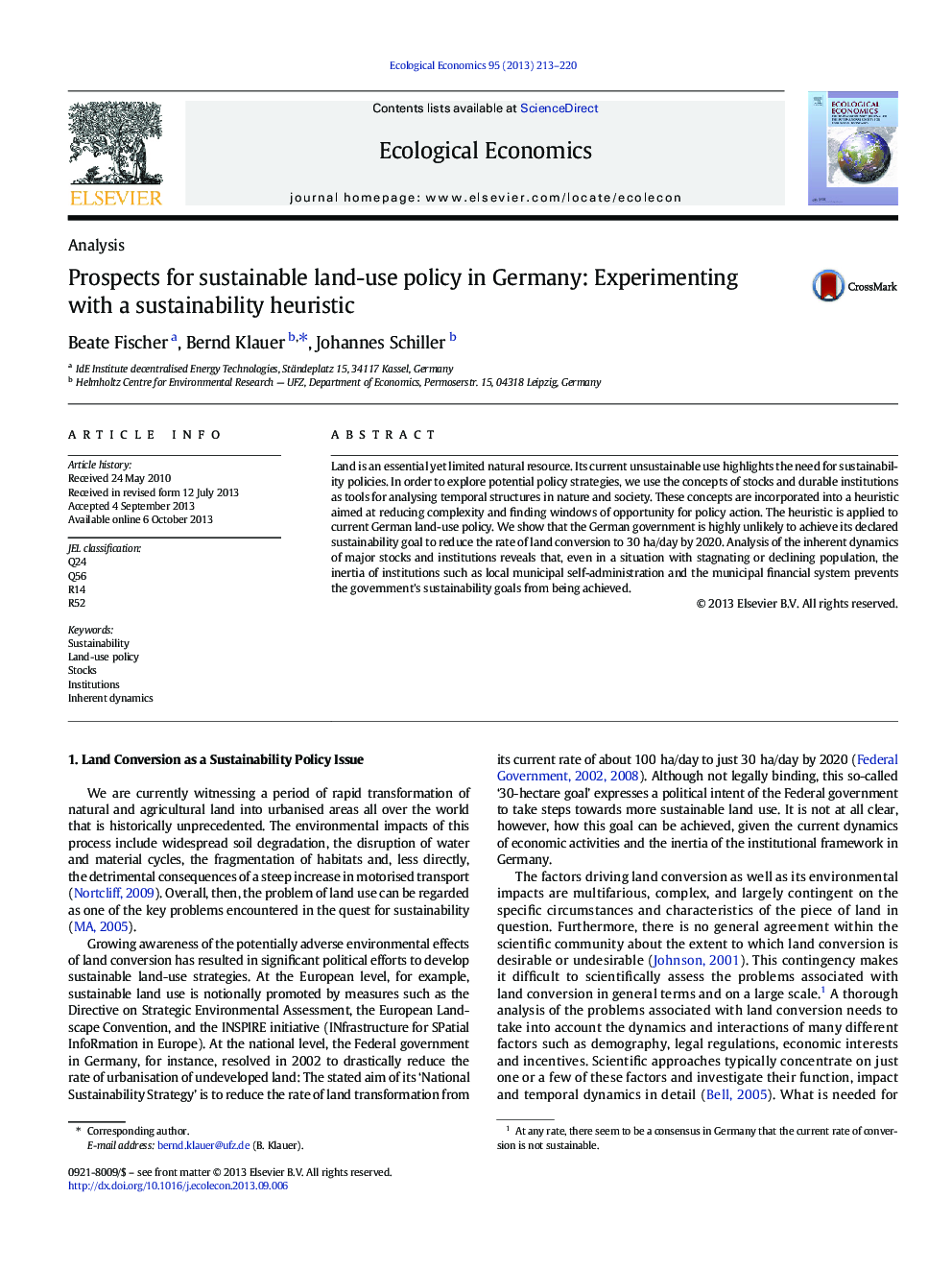| Article ID | Journal | Published Year | Pages | File Type |
|---|---|---|---|---|
| 5049797 | Ecological Economics | 2013 | 8 Pages |
Land is an essential yet limited natural resource. Its current unsustainable use highlights the need for sustainability policies. In order to explore potential policy strategies, we use the concepts of stocks and durable institutions as tools for analysing temporal structures in nature and society. These concepts are incorporated into a heuristic aimed at reducing complexity and finding windows of opportunity for policy action. The heuristic is applied to current German land-use policy. We show that the German government is highly unlikely to achieve its declared sustainability goal to reduce the rate of land conversion to 30Â ha/day by 2020. Analysis of the inherent dynamics of major stocks and institutions reveals that, even in a situation with stagnating or declining population, the inertia of institutions such as local municipal self-administration and the municipal financial system prevents the government's sustainability goals from being achieved.
